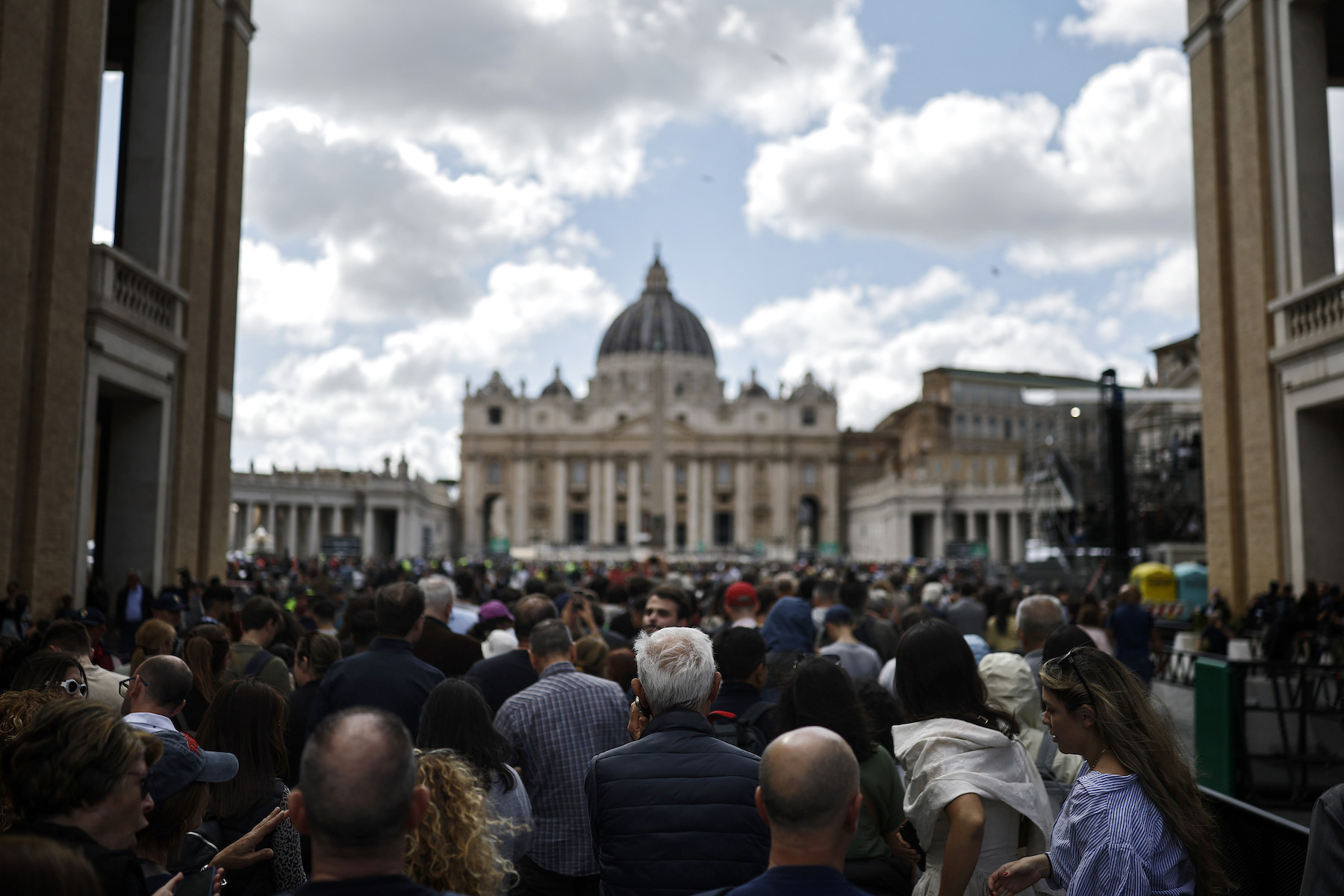The funeral of Pope Francis is perhaps his last chance to set his mark on the papacy. The ever so slightly pared down ceremony today is symbolic of the man, as were so many of his other ways of being pope. It will be difficult for Francis’s successor to return to the more ornate habits of his predecessor Pope Benedict XVI, let alone the monarchical ways of earlier popes. In some ways this is a shame – those traditions weren’t about the individual, but about the office, though they may jar with modern sensibilities.
The function of the pope is not to be liked as widely as possible
One of the problems about Francis, in fact, was the extent to which he was successful as a personality pope. His personal austerity, his impatience with the showy aspects of religion, his directness and his undeniable human touch constituted what you might call a brand. And just as the British monarchy has come to be conflated with celebrity, where the office is authenticated by the popularity of the holder, so the papacy has come to seem validated by the appeal of the pope to popular opinion, which isn’t quite the populus Dei.
That isn’t really Francis’s fault. The showbiz aspect of the thing was discernible earlier with John Paul II, who had an undeniable theatrical bent. But it’s worth observing, as Francis goes to his final rest, that the function of the pope is not to be liked as widely as possible but to be bishop of Rome and an authority to appeal to in cases of doctrinal division. The role is essentially negative. John Henry Newman observed that the papacy had value as a forum of last resort, which preserved the Church from error in matters of faith. ‘If Christianity is both social and dogmatic and intended for all ages it must, humanly speaking, have in infallible expounder.’ The basic purpose of the successor of Peter, the rock, is to guard the truth of the faith.
Obviously, it’s good if a pope can put fresh courage into Christians, galvanise persecuted communities and remind us of aspects of our humanity that we’re in danger of losing sight of. But the success of a pope isn’t to be judged by his cutting through to new audiences – though it’s nice if he does, and Francis did – it’s to be the custodian of the faith. Francis was something of a celebrity, as we see today at his funeral. But if his successor isn’t, and has a narrower conception of his role, you know, that’ll be just fine.









Comments